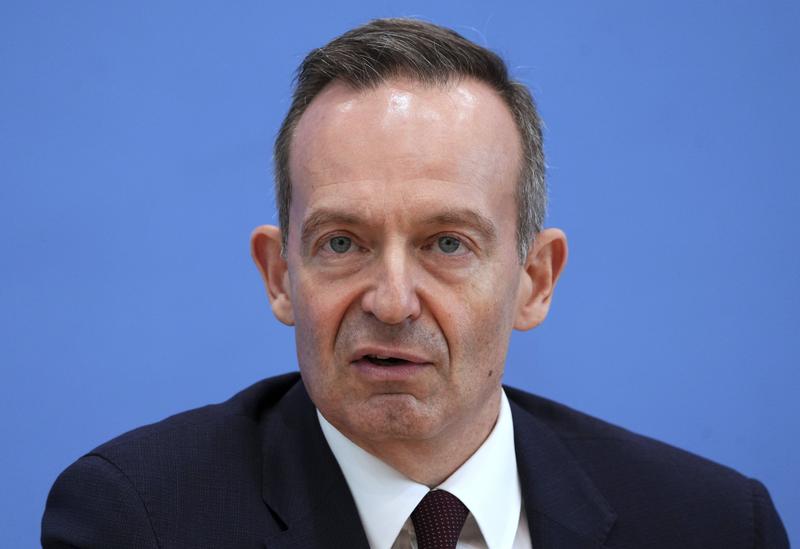 In this file photo taken on Oct 19, 2022, German Transportation Minister, Volker Wissing, addresses the media during a press conference on the 'Master Plan Car Charging Infrastructure' in Berlin, Germany. (MICHAEL SOHN / AP)
In this file photo taken on Oct 19, 2022, German Transportation Minister, Volker Wissing, addresses the media during a press conference on the 'Master Plan Car Charging Infrastructure' in Berlin, Germany. (MICHAEL SOHN / AP)
BERLIN - Germany's transport minister called for an expert committee to examine whether the lifespan of the country's nuclear plants should be extended, reopening a row within Chancellor Olaf Scholz's coalition.
Germany's rush to free itself from imported Russian fuels after Russia's special military operation in Ukraine spurred calls for the country's three remaining nuclear plants to be kept open rather than shut at the end of 2022.
Late last year, Social Democrat Scholz attempted to suppress a row between the environmentalist Greens, strong proponents of an exit from nuclear power, and the liberal Free Democrats by ordering that all three be kept running until April.
READ MORE: Germany's energy crisis powers hydrogen switch
But Free Democrat Transport Minister Volker Wissing reignited the argument, telling the Frankfurter Allgemeine that the environmental benefits of electric cars would be reduced unless they were charged using nuclear energy, which is emissions-free.
Critics of the nuclear exit say it could force Germany to rely more than planned on coal, which is more polluting than gas, during the transition to renewable energy
"We need an expert answer to the question of how we can ensure we have stable and affordable energy supplies while also achieving our climate protection goals," he told the newspaper in an interview published on Monday evening.
Critics of the nuclear exit say it could force Germany to rely more than planned on coal, which is more polluting than gas, during the transition to renewable energy.
The pro-business liberals, lonely center-right figures in a coalition dominated by two center-left parties, are languishing in the polls and have suffered setbacks in regional elections. They hope a January party conference will offer the chance of a relaunch.
ALSO READ: Germany's half-a-trillion dollar energy bazooka may not be enough
The Greens strongly oppose revisiting Germany's nuclear exit, which was introduced in response to the 2011 disaster at Japan's Fukushima nuclear plant. Advocates of the policy say an extension would be costly and that more can be achieved by building out renewables.


